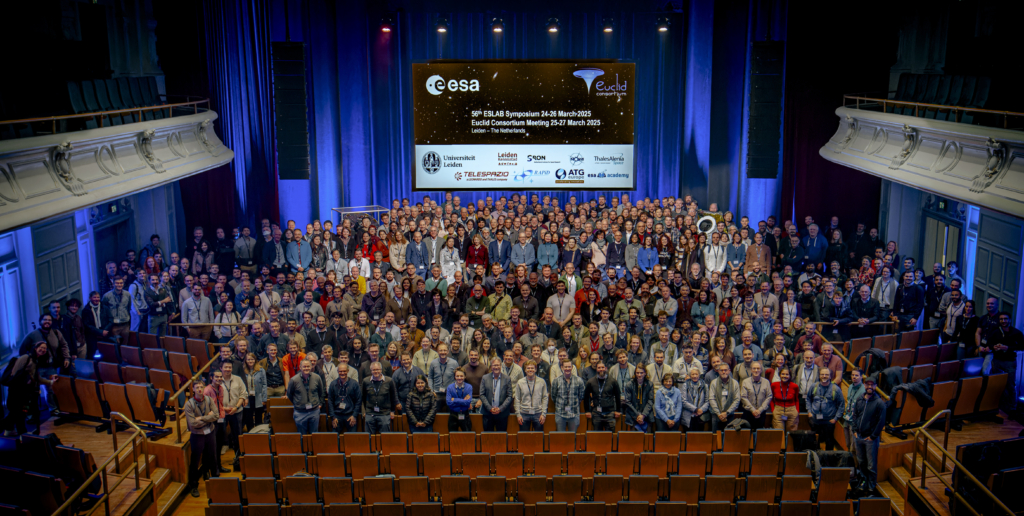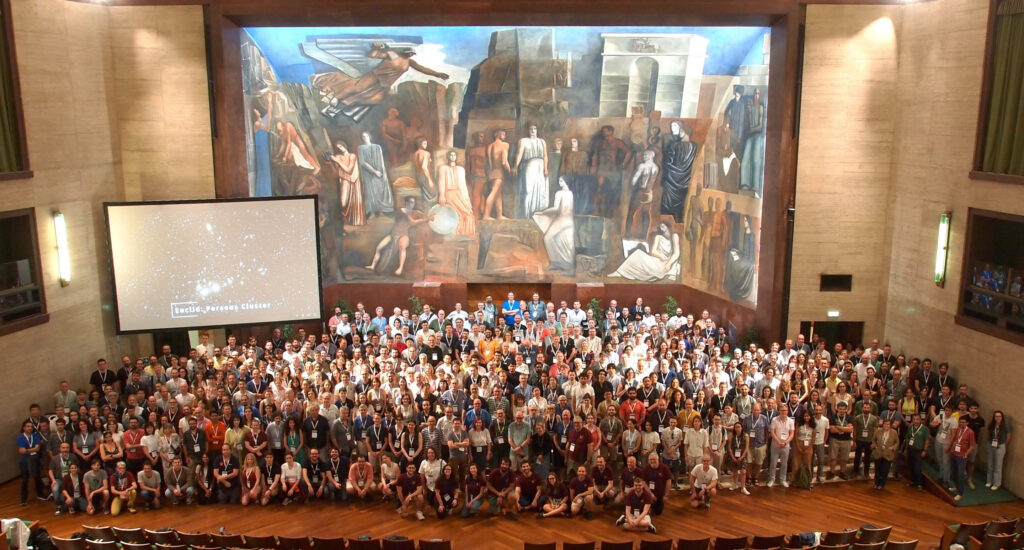About the Euclid Consortium and membership
Note: Membership in the EC is possible under condition of application and approval, for people working in EC membership countries. If you are interested and think you are elegible to join, please follow the initial steps outlined in the EC member Getting-Started-Guide.
The Euclid Consortium (EC) is an organisation that brings together teams of researchers in theoretical physics, particle physics, astrophysics and space astronomy, as well as engineers, technicians, and management and administrative staffs working in public research laboratories and contributing to the Euclid mission. Together with the European Space Agency (ESA) and aerospace industry they are part of the Euclid Collaboration.
The EC has been selected by ESA in June 2012 as the single official scientific consortium having the responsibility of the scientific instruments, the production of the data, and of leading the scientific exploitation of the mission until completion. It is funded by national space agencies and national research organizations and led by the Euclid Consortium Lead (ECL) and a Euclid Consortium Board (ECB). The ECL and ECB are the primary contact points with ESA and with the Euclid Consortium members.
The EC is responsible for the definitions of the scientific goals, the mission concept, the science requirements and the survey. It is also in charge of the design, construction, tests, integration and delivery to ESA of the imaging and spectroscopic instruments VIS and NISP. The Euclid Consortium Science Ground Segment (EC SGS) is responsible of the design, development tests, integration and operation of the data processing tools, pipelines and data centers. It shares with the EC Science Working Groups (SWG) the responsibility of the scientific production and delivery of Euclid data releases, and their scientific analysis and interpretation. The EC COMS group organises and coordinates all EC communication activities.
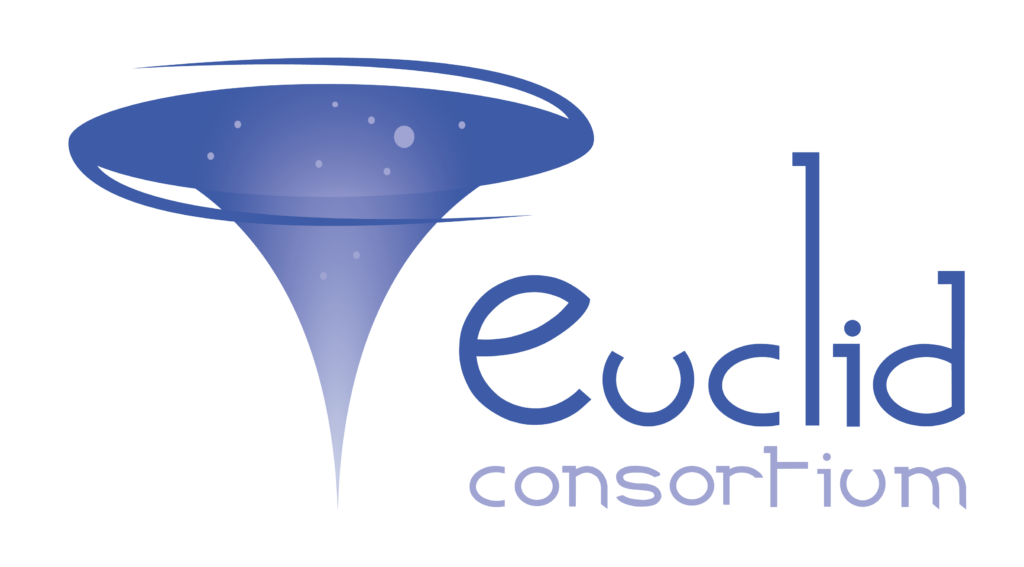
The EC is currently composed of the early teams that imagined, designed and proposed the Euclid mission submitted to the ESA Cosmic Vision program selection as well as new institutes that are now contributing to the implementation phase. To date 15 European countries contribute to EC activities (Austria, Belgium, Denmark, Finland, France, Germany, Hungary, Italy, the Netherlands, Norway, Portugal, Romania, Spain, Switzerland and United Kingdom). Canada and USA through NASA and few US laboratories as well as few Japanese laboratories are also contributing and members of the Euclid Consortium.
In total, more than 2600 members were or are registered in the EC (status early 2023), of which more than 1000 are researchers in astrophysics, cosmology, theoretical physics, and particle physics. More than 200 laboratories covering all fields in astrophysics, cosmology, theoretical physics, high energy, particle physics and space science that are relevant for the Euclid missions are contributing to Euclid.
The EC aims to encourage a positive and inclusive environment. The EC is convinced that embracing equality, diversity and inclusion is key to success. Every single member of the EC plays a key part in this process.
The Euclid Consortium meets once a year for its annual Euclid Consortium Meeting. The pictures below show the EC members attending the last meetings; meetings in 2020/2021 were fully remote, 2022 onward hybrid.
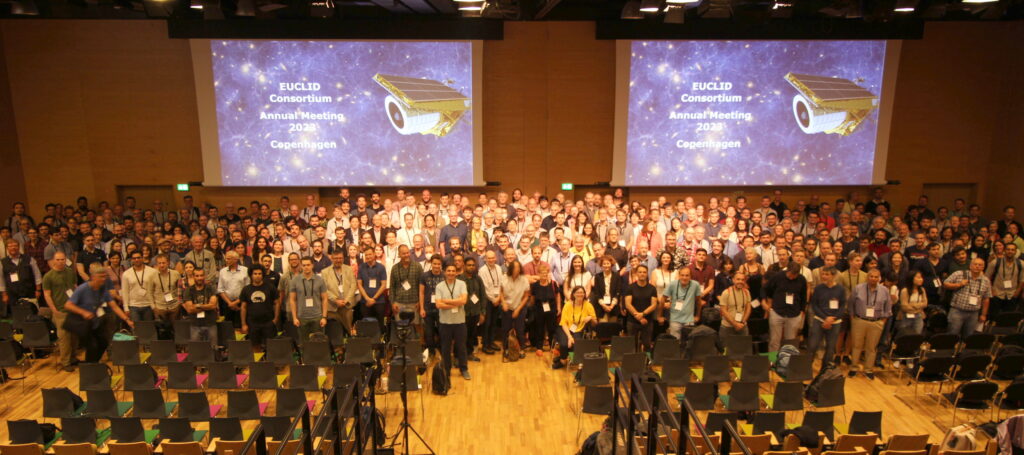
Euclid Consortium Meeting in Copenhagen (June 19–23, 2023) – Photo credit: Local Organizing Committee
Members of the Euclid consortium at the Euclid Meeting in Oslo (April 26–29, 2022), online participants at the bottom – Photo credit: Martina D’Angelo (ITA / UiO)
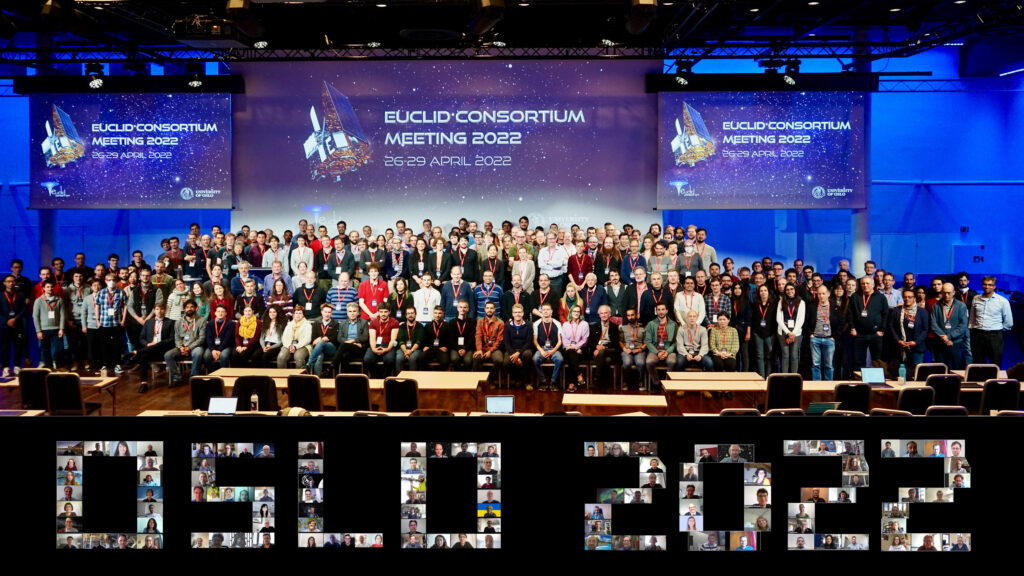
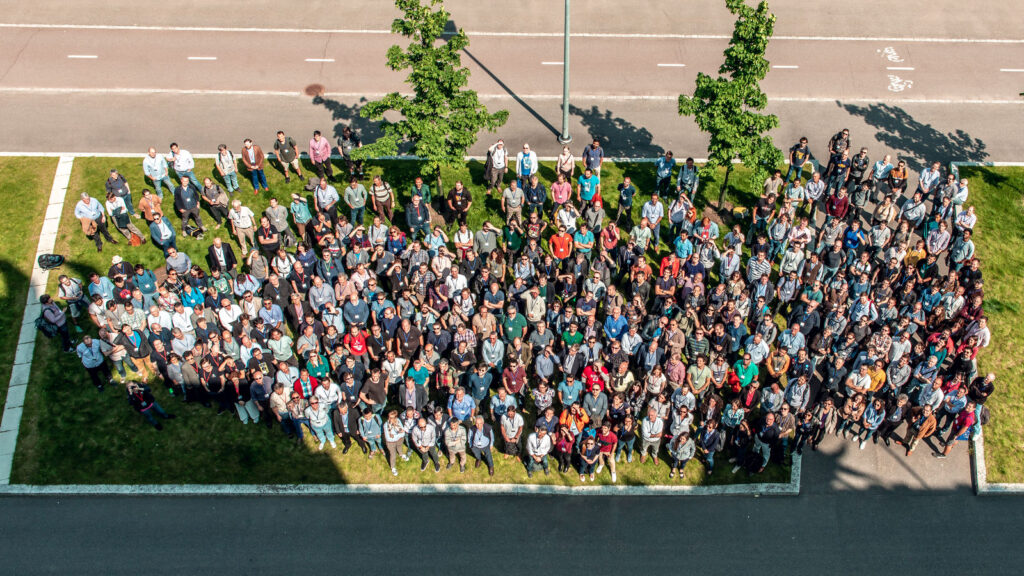
Members of the Euclid consortium at the Euclid Meeting in Helsinki (June 04–07, 2019) – Photo credit: Mäläskä / Tailorframe Oy
Members of the Euclid consortium at the Euclid Meeting in Bonn (June 11–15, 2018) – Photo credit: LOC of the Bonn Euclid Consortium Annual Meeting
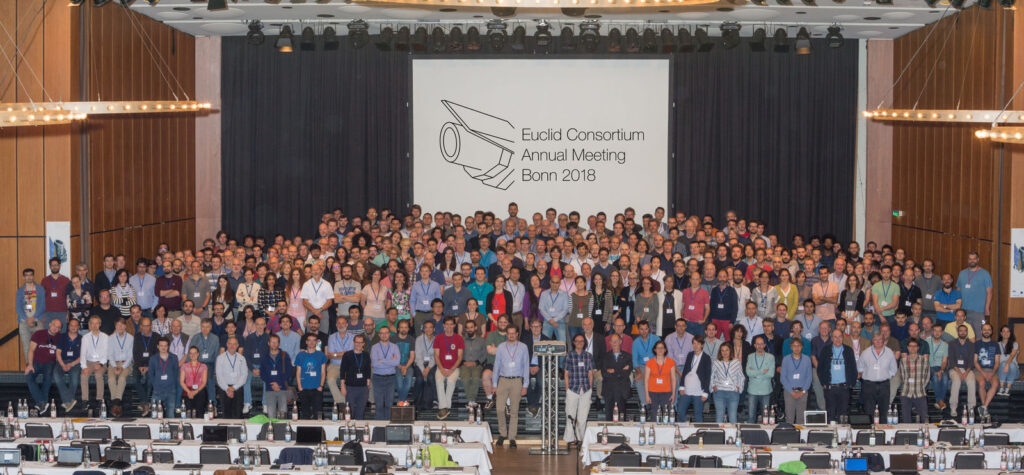
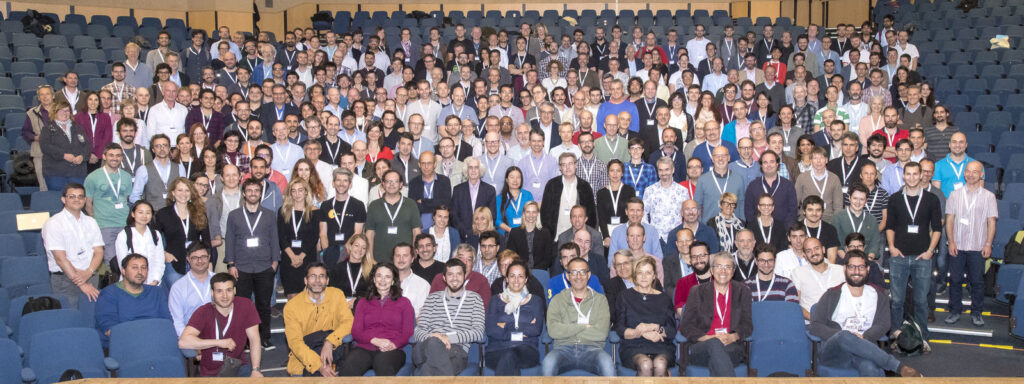
Members of the Euclid consortium at the Euclid Meeting in London (June 05-08, 2017) – Photo credit: LOC of the London Euclid Consortium Annual Meeting
Members of the Euclid consortium at the Euclid Meeting in Lisbon (May 30 – June 03, 2016) – Photo credit: Euclid Consortium
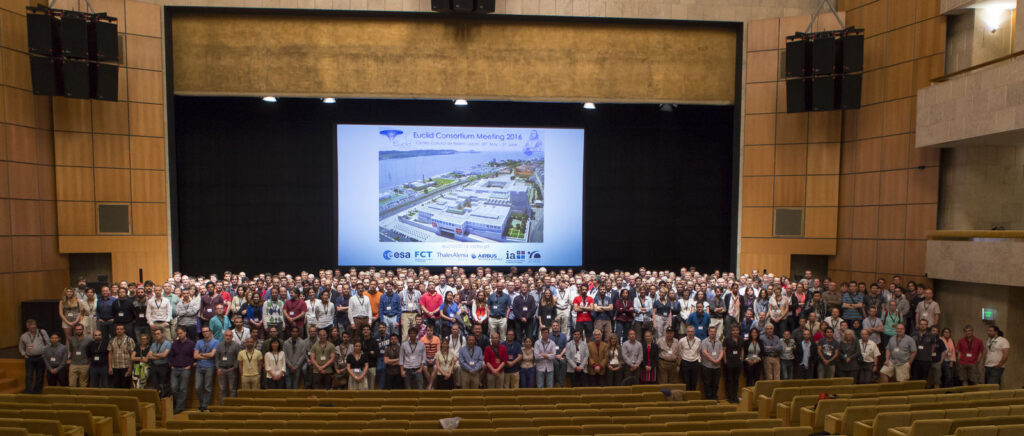
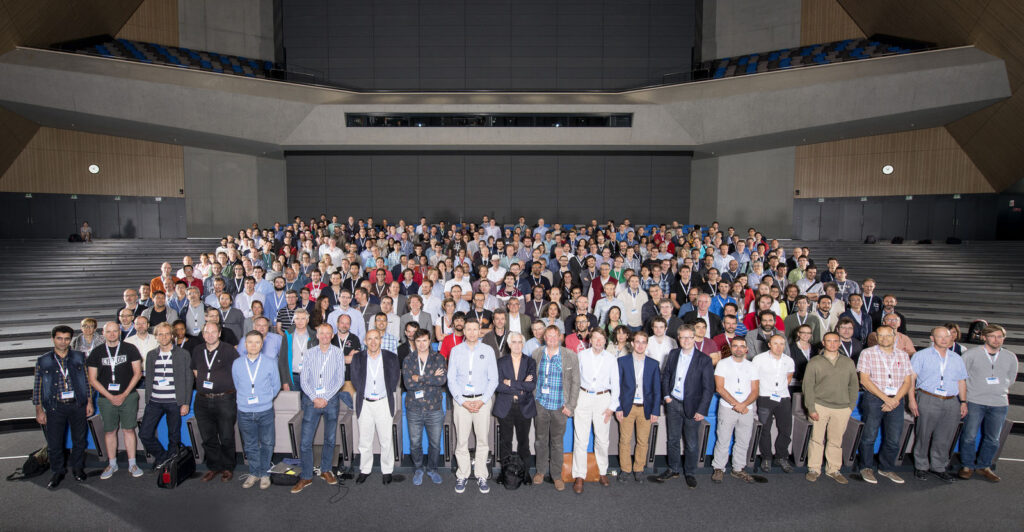
Members of the Euclid consortium at the Euclid Meeting in Lausanne (June 08-12, 2015) – Photo credit: Euclid Consortium
Members of the Euclid consortium at the Euclid Meeting in Marseille (May 05-09, 2014) – Photo credit: Euclid Consortium
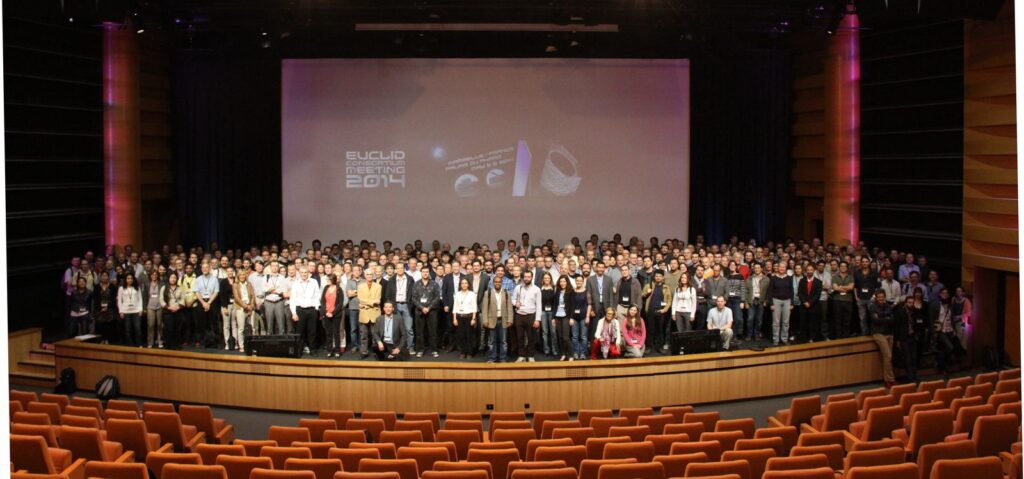
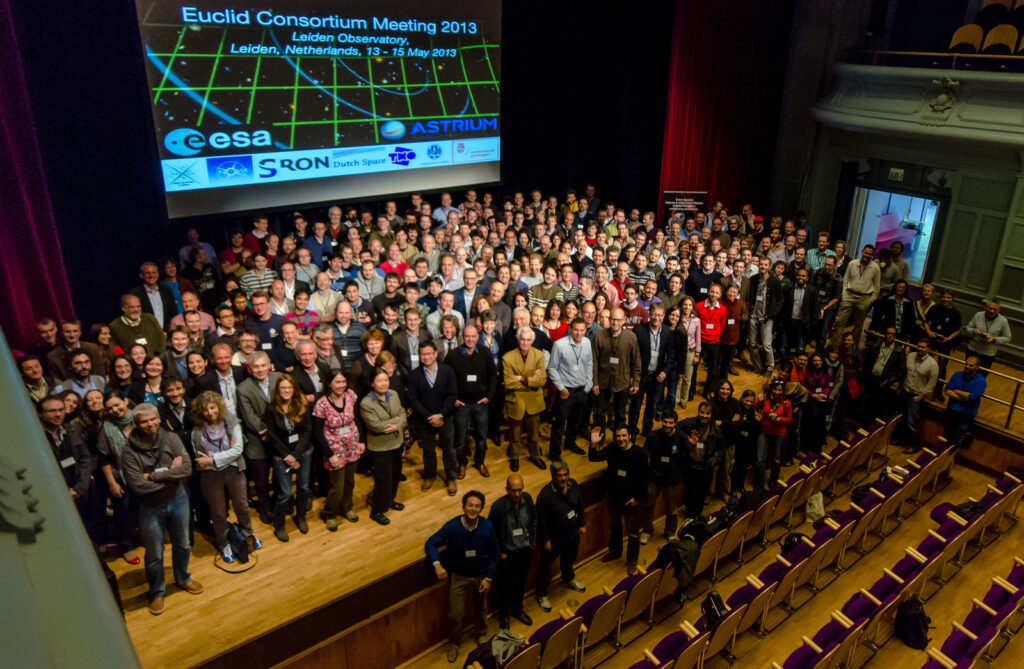
Members of the Euclid consortium at the Euclid Meeting in Leiden (May 13-15, 2013) – Photo Credit: Euclid Consortium
Members of the Euclid consortium at the Euclid Meeting in Copenhagen (May 14-15, 2012- Photo credit: Bjarne Sørensen/Space Science Center
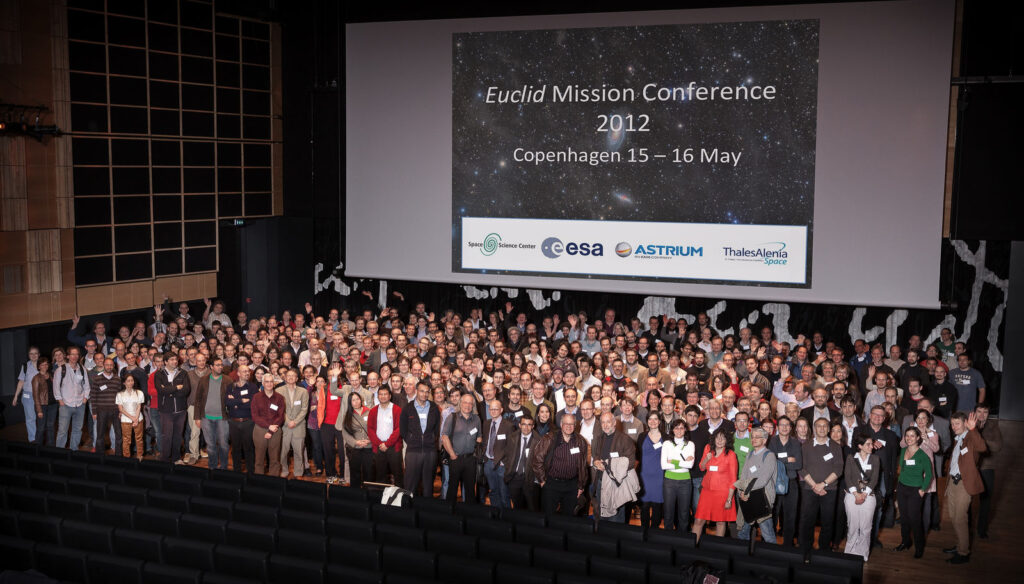
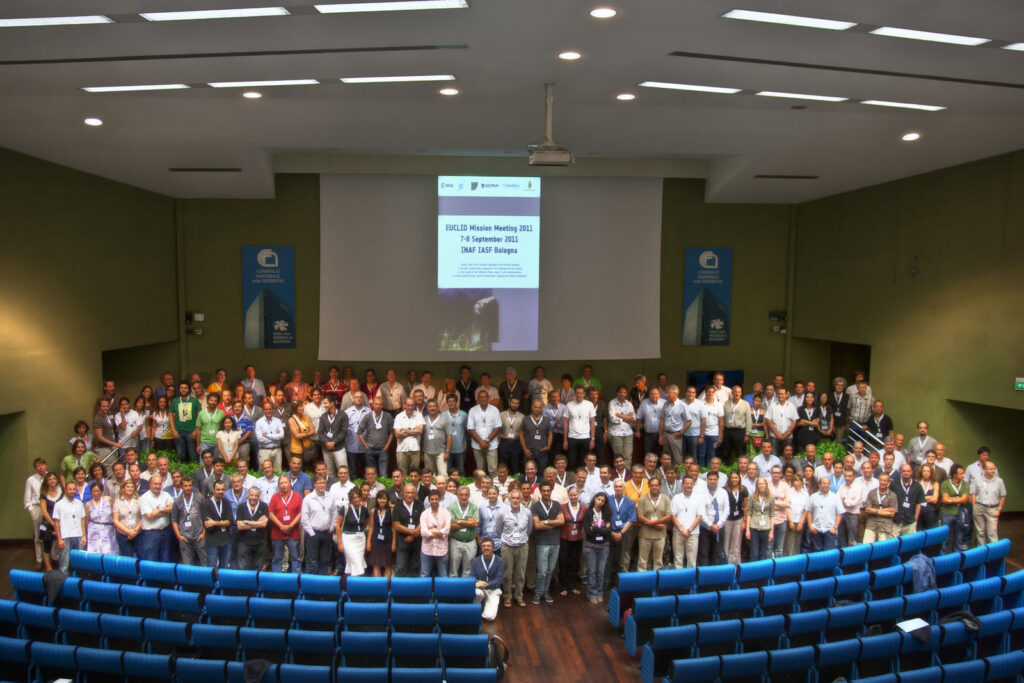
Members of the Euclid consortium at the Euclid Meeting in Bologna (Sept 7-8, 2011)- Credit:Pietro Procopio, INAF/IASF-Bologna
Updated: 2025-03-25, KJ

